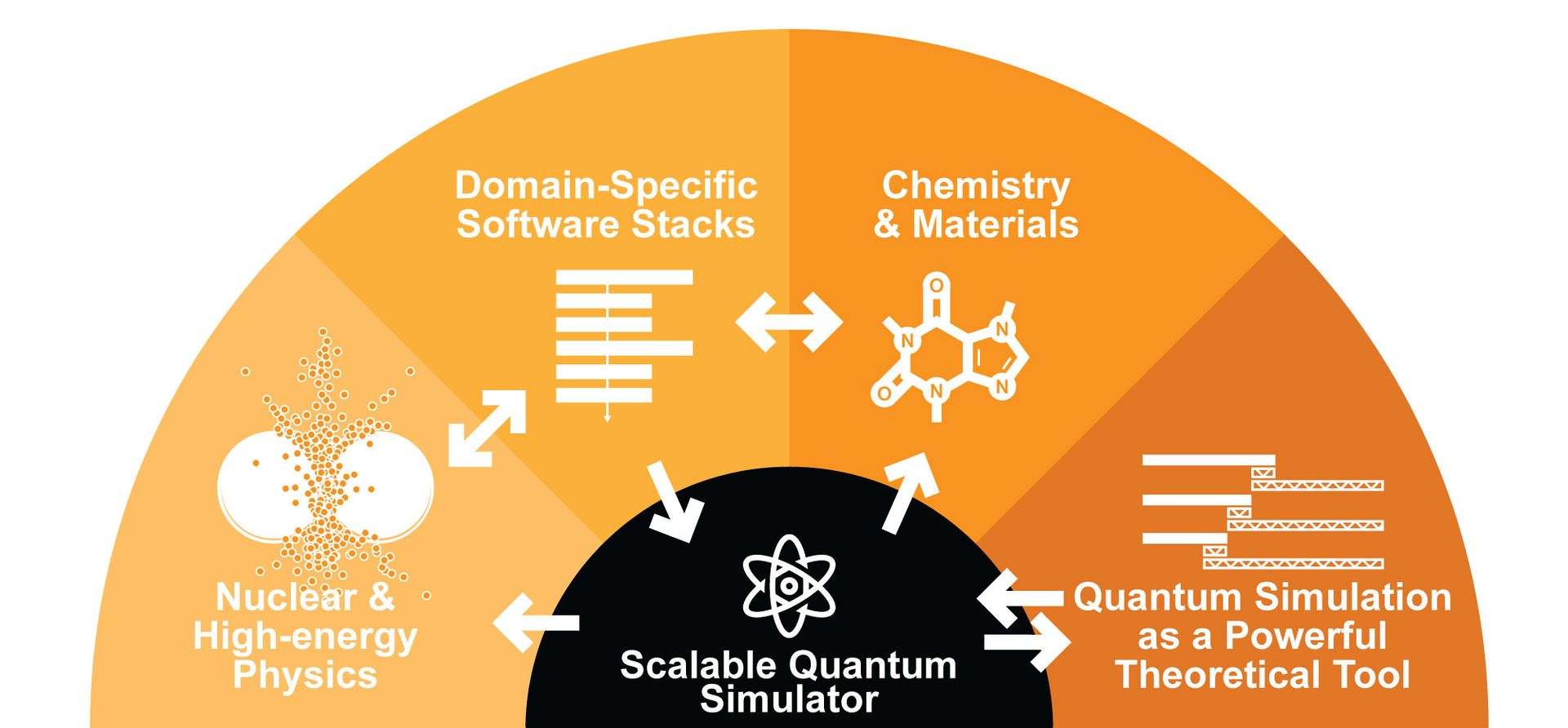RC3: Scalable Quantum Simulations for Science and Technology

State-of-the-art quantum simulators wield control over dozens or hundreds of qubits. To create universal quantum simulators capable of tackling the most compelling applications, that number will likely need to grow into the millions.
There is a wide gulf between the state-of-the-art and the machines of the future, and RQS researchers are designing the algorithms, error correction techniques and software tools that will help bridge that gap. By putting new techniques and tools into practice on contemporary hardware, they are laying the groundwork for the larger quantum simulators of the future.
For instance, RQS researchers are using the insights gained from the other two research challenges to engineer quantum simulations of nuclear and high-energy physics in two leading quantum simulation platforms studied by RQS members: atomic ions and neutral atoms. Likewise, they are exploring quantum simulation of chemistry and materials using superconducting systems—another leading quantum simulation platform in which RQS has expertise.
Experiments demonstrating that quantum simulators provide an advantage is only half the story. RQS theorists are also using quantum simulation as a way to understand the behavior of many-body quantum systems and to ask and answer deep questions about theoretical computer science.
RC3 Co-Leads
RC3 Co-Lead
RC3 Co-Lead
Featured Publications
Quantum simulation of conical intersections using trapped ions
, , Nature Chemistry, 15, 1509–1514, (2023)Digital Quantum Simulation of the Schwinger Model and Symmetry Protection with Trapped Ions
, , PRX Quantum, 3, (2022)Ultrastrong light-matter interaction in a multimode photonic crystal
, , arXiv, (2022)Observation of a finite-energy phase transition in a one-dimensional quantum simulator
, , Nature Physics, 21, (2025)Schuckert et al_2023_Observation of a finite-energy phase transition in a one-dimensional quantum.pdf


